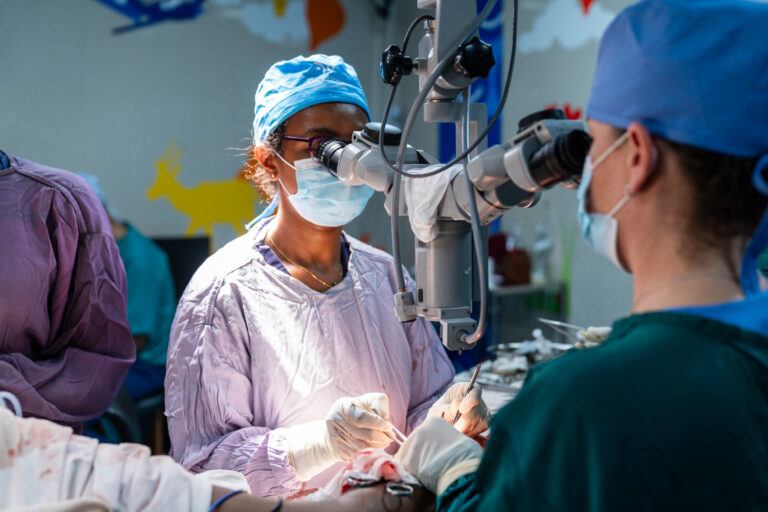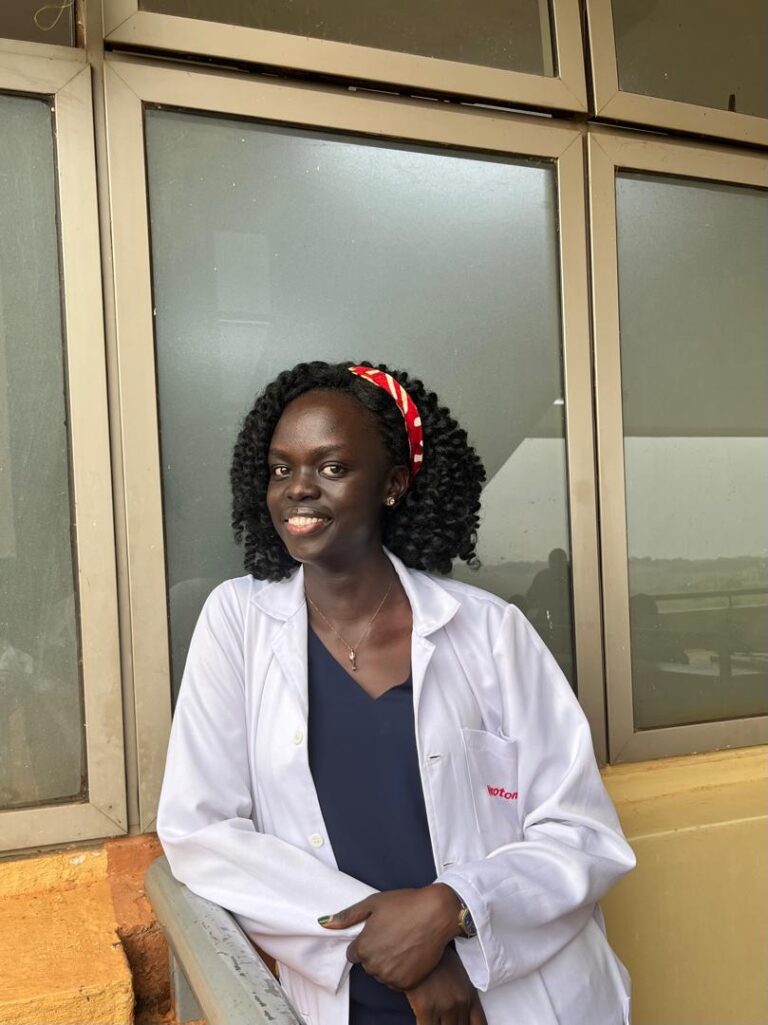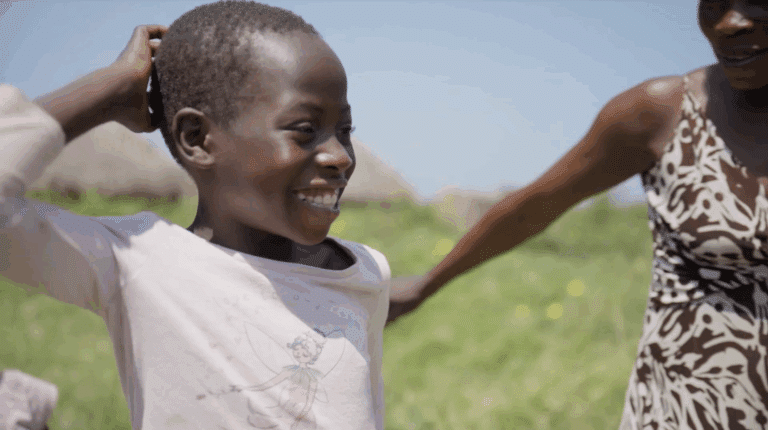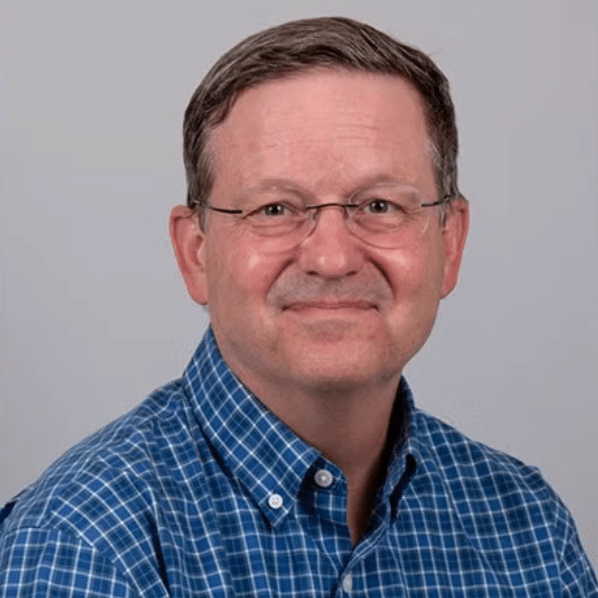ReSurge International has been pioneering access to microsurgery in Sub-Saharan Africa through a research-backed model that scales microsurgery education and training to build access to reconstructive surgical care. This has been part of a long-term initiative encompassing a series of educational workshops, cross-regional and international collaborations between institutions, advancements in academic research on microsurgery, and hands-on microsurgery training in areas where it’s needed most.
Building access to microsurgery in Sub-Saharan Africa through surgical training will empower a new generation of African reconstructive surgeons to deliver access to life-changing reconstructive surgical procedures. According to a ReSurge and Stanford University study, just one surgeon in a low-income country can treat 10,000 patients in their career, and if they become a full-time surgeon-trainer, they can transform over 400,000 lives in their lifetime by their succeeding trainees — creating a substantial multiplier effect across generations.
Through microsurgery training in particular, surgeons will be able to hone their expertise in some of the most complex but essential surgical techniques, enabling sustainable access to comprehensive care for the most vulnerable and marginalized patients in their communities, alongside the development of local surgical ecosystems, at scale.
What is Microsurgery and why is it so important?
Microsurgery refers to surgical procedures performed under a microscope – precision procedures that enable surgeons to reconnect nerves, blood vessels, skin, bone, and tissue to repair damage from trauma, burns, and disease, further restoring mobility and dignity.
Microsurgery isn’t just a technique but is essential in treating a host of surgical conditions and improving patient outcomes. It’s critical in saving limbs from amputation, treating traumatic injuries such as those caused by road traffic accidents, and enabling procedures like breast reconstruction to heal patients with breast cancer. For example, during a ReSurge Surgical Training Trip last year, Fita, a motorcycle taxi driver in Sebata, Ethiopia, the victim of a hit and run accident, received a life-changing operation at no cost to him: a gracilis muscle flap, a delicate microsurgery to restore function in his arm. Today, he has regained movement in his elbow.
By providing a way to repair tiny structures like nerves and blood vessels, microsurgery allows for the restoration of function and appearance in cases of physical trauma, cancer, or congenital anomalies, leading to improved quality of life and increasing the rate of survival for patients. As a result, it is a crucial component of surgical care, with success rates as high as 97%-99% in high-income countries like the United States.
There is a Gap
Microsurgery is largely nonexistent in most countries in Sub-Saharan Africa. There is a gap between high-income and low-income countries, with it being inaccessible in the latter, particularly in East, Central, and Southern Africa.
Several complex factors contribute to this gap. Globally, there is a shortage of reconstructive surgeons. For example, the U.S. has one reconstructive surgeon for every 50,000 people. Sub-Saharan Africa has only 1 reconstructive surgeon per 10 million people – this ultimately impacts the number of surgeons available to learn and practice microsurgery.
Additionally, microsurgery equipment and supplies are expensive and require capital investment from hospitals and governments, perpetuating a disparity between who can learn, train, and practice it in low-resource settings.
ReSurge is pioneering a feasible way for surgeons to access and train in microsurgery, one that takes into account local needs and resources, as a way to address a variety of surgical conditions while bridging the global disparity in access to reconstructive surgical care worldwide.
Microsurgery Workshops and Surgical Exchange Trips
Our efforts in microsurgery, particularly in Africa, started as a series of successful workshops. ReSurge International, in partnership with the Division of Plastic and Reconstructive Surgery at Stanford, led a groundbreaking workshop from November 29 to December 1, 2023, at ALERT Hospital in Addis Ababa, Ethiopia. This contributed to a broader research project, entitled “Validating a Scalable Approach to Microsurgery Education in Resource-Limited Countries,” and was supported by Stanford Surgery’s Global Engagement Program.
According to an article published by Stanford Plastic Surgery, the 3-day microsurgery training course educated more than 20 surgeons. There was also a concurrent anesthesia workshop on critical airway procedures for 11 trainees. Among the six international presenters in the workshop, two were from Stanford.
The workshop involved intensive hands-on training, lectures, anatomy lab dissections, and the provision of essential supplies, including smartphone stands, desk microscopes, and training suture, which were donated to ALERT Hospital’s plastic surgery program. Therefore, the workshop stimulated important studies, including the one mentioned earlier, which is the first to directly examine the effectiveness of smartphones as a tool for scalable microsurgery training in low- and middle-income countries (LMICs).
“The immediate impact of your support was evident in the training of at least 20 eager surgeons in Ethiopia, marking a significant step towards creating sustainable approaches to overcome the global surgery burden in LMICs,” said Dr. James Chang, Consulting Medical Officer for ReSurge International and Stanford’s Chief of the Division of Plastic and Reconstructive Surgery.”
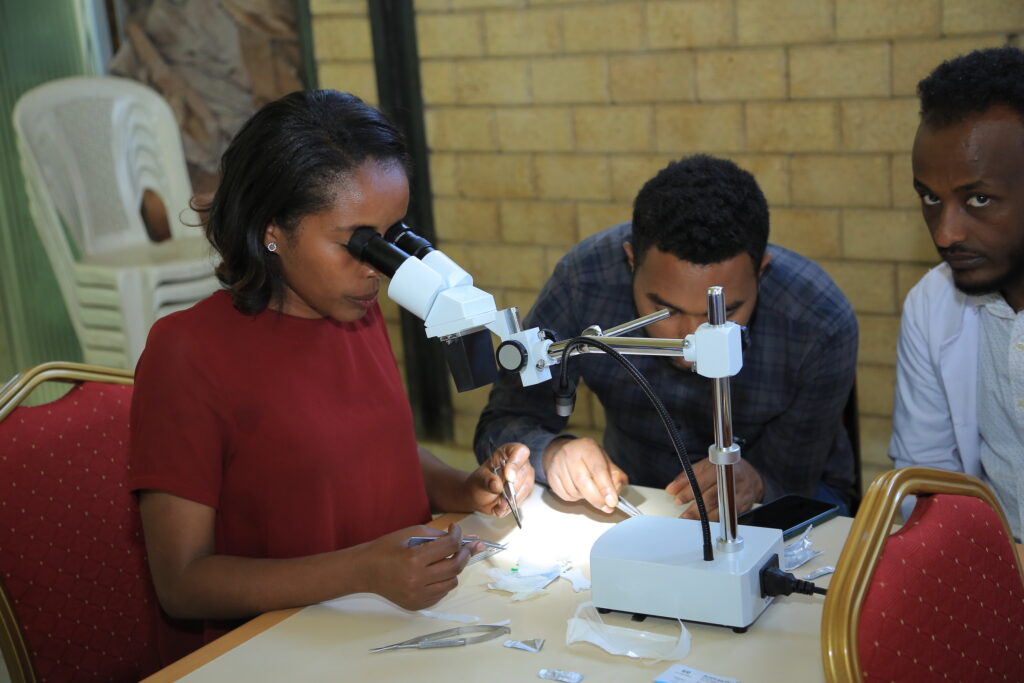
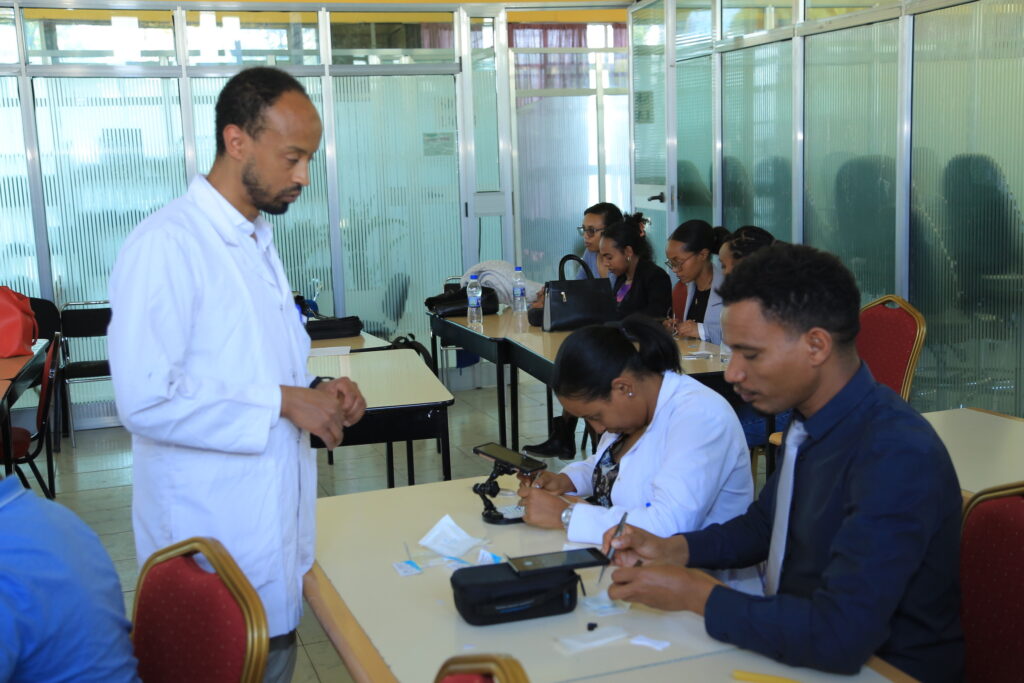
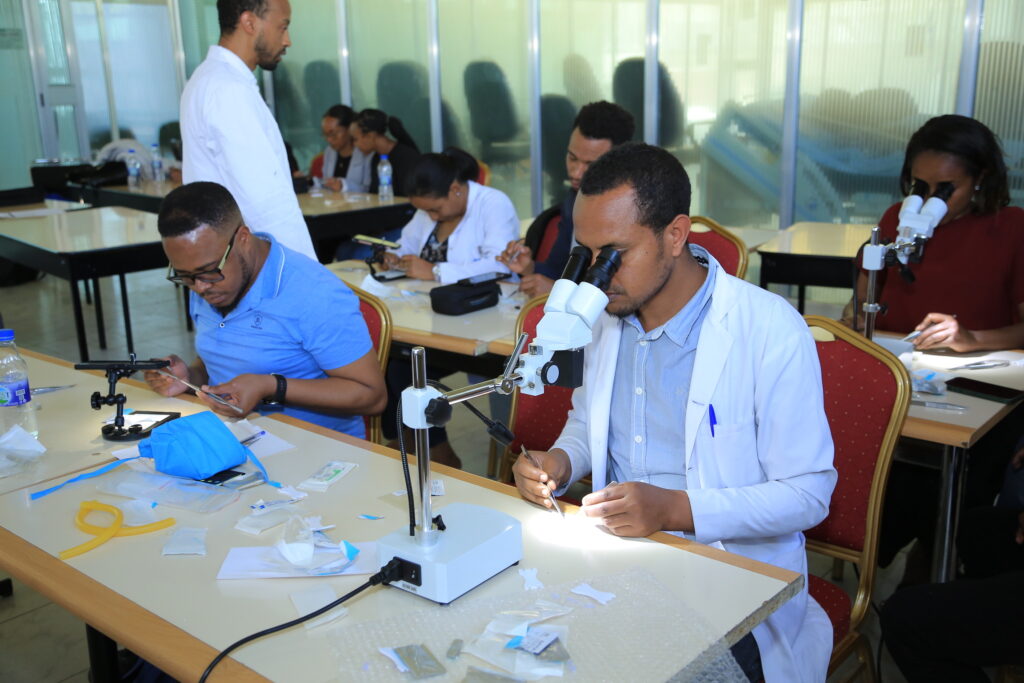
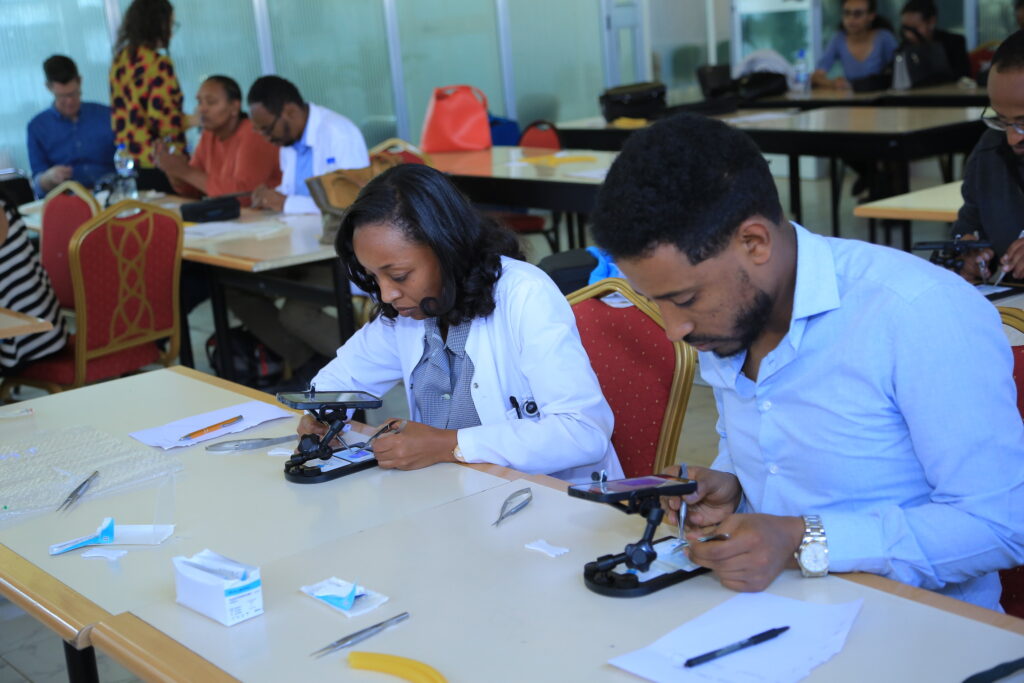
Validating a Scalable Approach to Microsurgery Education in Resource-Limited Countries
The ReSurge study, entitled “Validating a Scalable Approach to Microsurgery Education in Resource-Limited Countries,” was conducted with the cohort of Ethiopian plastic surgery attendees and residents who were selected to participate in ReSurge’s three-day microsurgery training workshops. The findings suggest that smartphones can serve as valuable tools for microsurgery training and practice in low-resource settings.
This year, the study was successfully published in the Journal of Reconstructive Microsurgery, unveiling a scalable approach to microsurgery education in low -and middle-income countries. The publication of our research in microsurgery is the latest in our efforts to lead and expand the scientific discourse on access to microsurgery training in low -and middle-income countries.
Balancing Microsurgery Discourse and Practice
Having birthed an entirely new study, those workshops were just the beginning. Since then, similar local and community-driven initiatives in microsurgery have been successfully supported by ReSurge International across different regions.
We organized one in Harare, Zimbabwe, which involved interactive sessions, case discussions, cadaver dissections, and simulation exercises. The feedback we received from aspiring microsurgeons was overwhelmingly positive.
For example, Dr. Bright Wasambo Mwafulirwa shared the following experiences after participating in a ReSurge course. “The lessons I take away from this experience are profound. Seasoned microsurgeons shared not only their technical expertise but also their wisdom and encouragement. They challenged us to approach the discipline with courage, learn from setbacks, and foster teamwork—core values that will shape the next generation of microsurgeons.”
He continued to emphasize more insights he walked away with, stating, “As I continue on my journey, I am inspired to take these lessons forward, contribute to the growth of microsurgery in Africa, and ensure that the discipline thrives. Together, we can transform the landscape of plastic surgery and provide life-changing care to those who need it most.”
The feedback we received continuously reinforced that the course was “not just a learning opportunity but a stepping stone for aspiring microsurgeons in Africa.”
A New Generation of Pioneering Microsurgeons in Africa
The surgeon who helped train others in the course was none other than a ReSurge Local Surgical Partner, Dr. Owen Muzinda. Originally from Zimbabwe, Dr. Muzinda started as a ReSurge surgical trainee with a passion for microsurgery. ReSurge continued to support his training, and he has gone on to become a notable trainer, training others across Africa to master microsurgery techniques.
“In 2019, I started to dream about microsurgery. This was mainly because of lower limb reconstruction; patients were condemned to amputation because there were no other options. Just training for basic plastic surgery in Zimbabwe was a difficult journey, so this was a very big dream.”
ReSurge supported his surgical exchange trips to Uganda, supporting his training in reconstructive surgery. He then spent time in Nepal, India, and even in his home country of Zimbabwe at CURE Hospital, mastering skills in microsurgery.
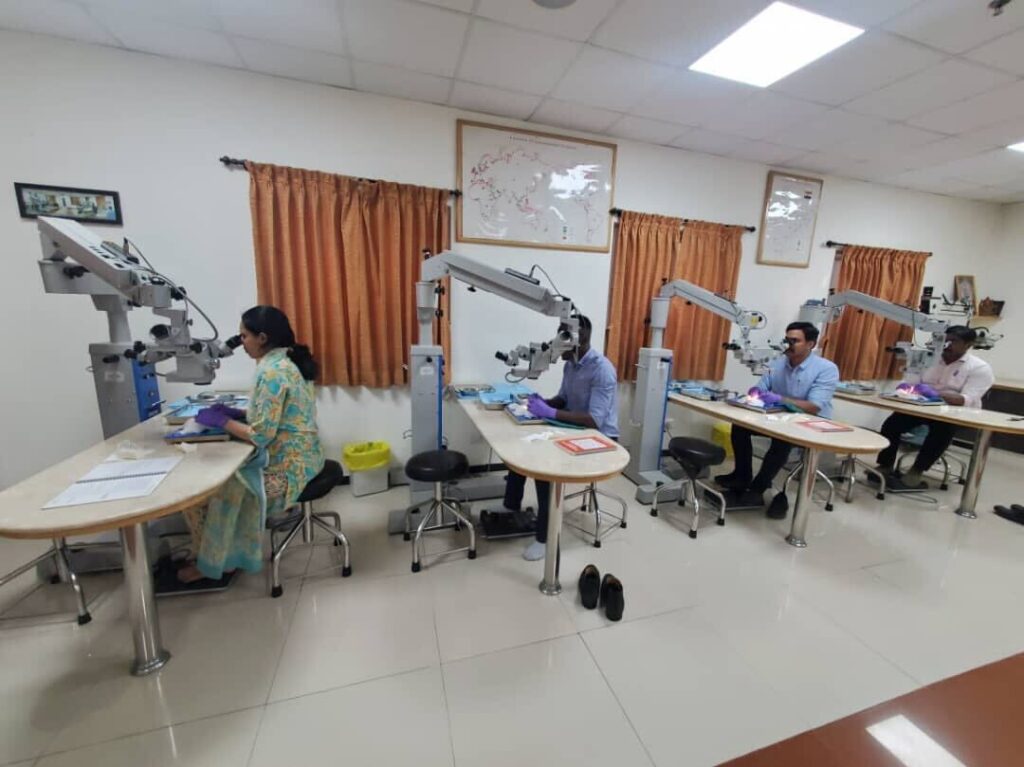
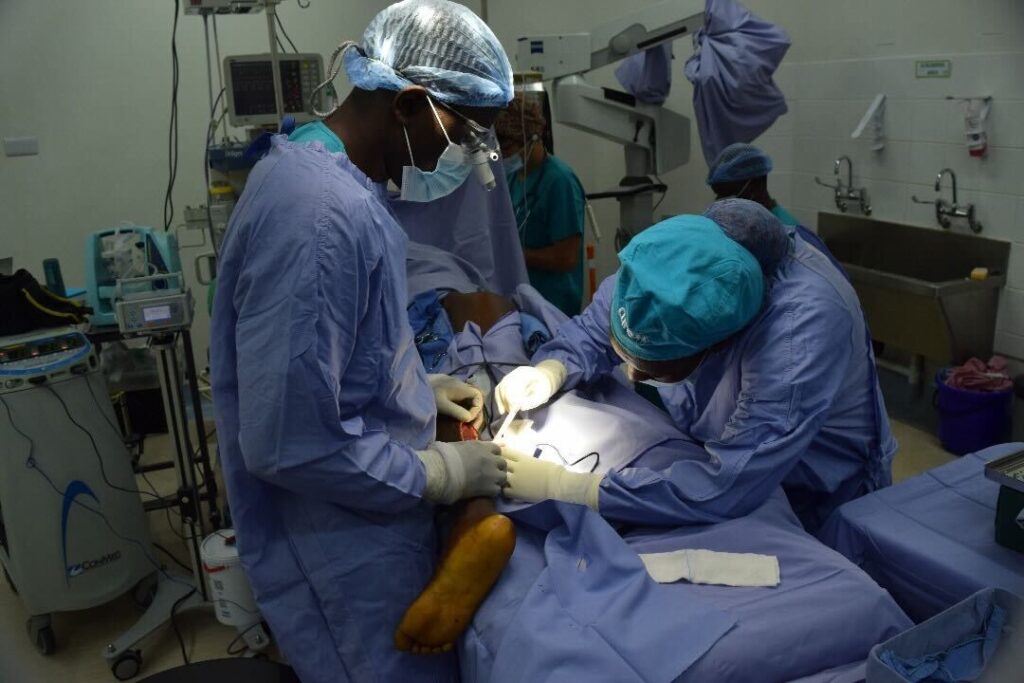
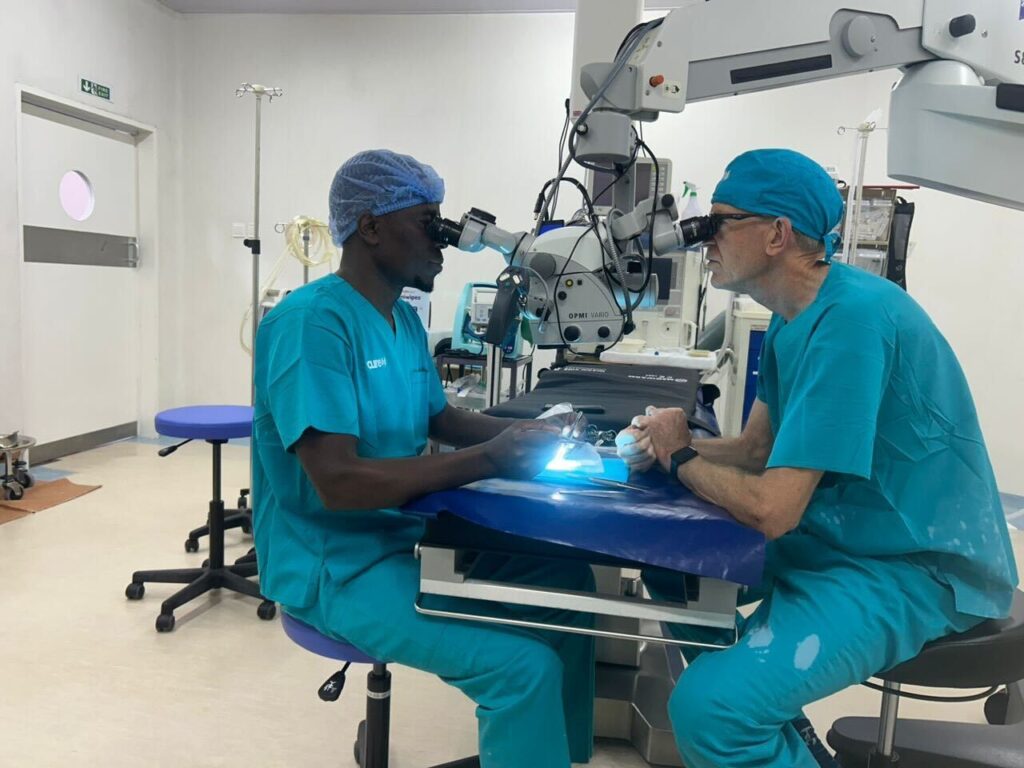
He is now a ReSurge Surgical partner, pioneering access to training others in microsurgery, including Dr. Bright Wasambo Mwafulirwa.
ReSurge surgical trainees and partners have continued to arise with an immense desire to learn and master the field. In May, we hosted a Surgical Team Training Trip in Addis Ababa, Ethiopia, which focused on advancing microsurgery with local surgeons at ALERT Hospital. Medical experts from institutions, including the University of Washington, University of Wisconsin, and Stanford Plastic Surgery, conducted hands-on training with local surgeons. On this trip, ReSurge PWRS Surgeon, Hellina Legesse, practiced microsurgery for the first time.
In July, ReSurge Surgical Partner, Dr. Chihena Banda from Zambia, hosted the first African-led microsurgery course, supported by ReSurge. The course involved participants representing seven countries: Zambia, Zimbabwe, Malawi, Kenya, Rwanda, Uganda, and Ethiopia, several of whom are already ReSurge partner surgeons.
The workshop was a success, developing essential technical skills, networks, mentorship opportunities, and increased awareness of the clinical importance and potential applications of microsurgery across Africa. It established a foundation for continued education and future advanced courses in microsurgery.
Through efforts such as these, local surgeons in places like Ethiopia and Zimbabwe will continue to receive training in microsurgery techniques, apply them to improve patient outcomes, and train others to do the same. While the need for microsurgery is immense, so is the desire to learn, practice, and master it among ReSurge’s pioneering surgeons. Follow us as we continue our journey to train and scale microsurgery in Sub-Saharan Africa.

